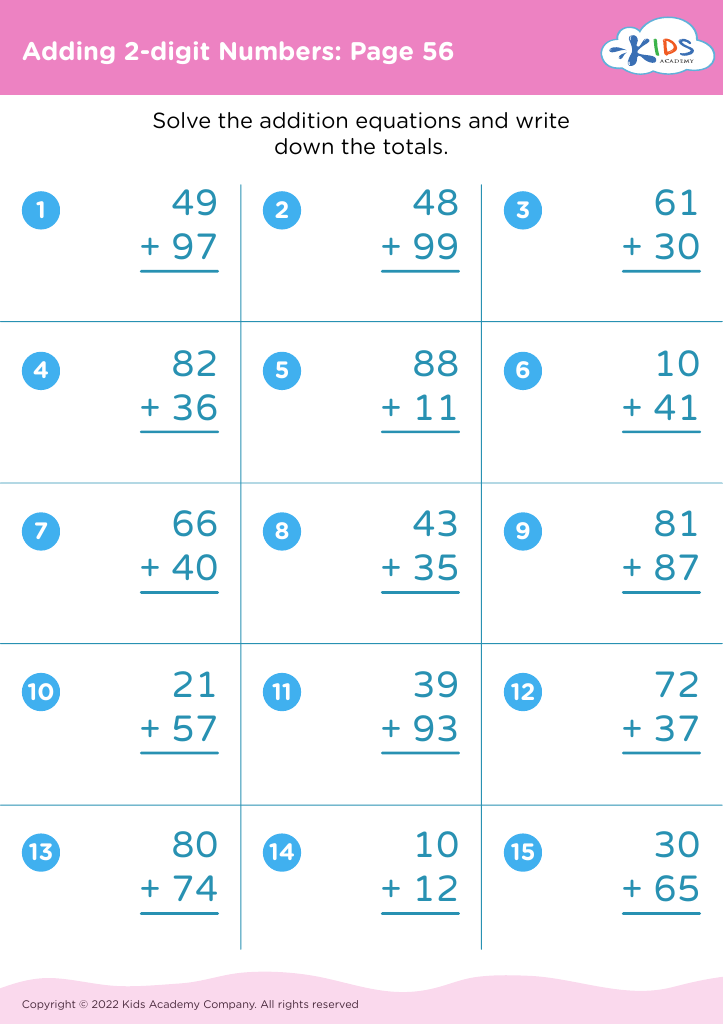Boost critical thinking Addition & Subtraction Worksheets for Ages 4-7
3 filtered results
-
From - To
Introducing our "Boost Critical Thinking: Addition & Subtraction Worksheets for Ages 4-7," designed to enhance young learners' problem-solving skills and numerical fluency. These engaging worksheets encourage kids to think critically while practicing addition and subtraction, laying a solid mathematical foundation. Through fun, interactive activities, children aged 4-7 can explore different strategies to solve problems and build confidence in their math abilities. Perfect for homeschooling or extra practice, these worksheets are crafted to boost critical thinking and foster a love for learning. Unlock your child’s potential with our expertly designed math resources.
Boosting critical thinking in addition and subtraction for children aged 4-7 is crucial for several reasons. Firstly, foundational math skills foster a better understanding of more complex mathematical concepts later on. When children develop a strong grasp of basic addition and subtraction, they are more prepared for future academic challenges.
Secondly, critical thinking in these early math activities encourages problem-solving and logical reasoning. Young learners who engage in thinking through math problems, rather than just memorizing facts, learn to analyze situations, make decisions, and develop explanations for their solutions. This not only heightens their intellect but also enhances their confidence in tackling new problems.
Moreover, emphasizing critical thinking helps children see math as a meaningful, enjoyable activity rather than a set of rote tasks. Creative thinking methods can introduce fun and engaging ways to explore numbers, helping maintain children's natural curiosity and enthusiasm for learning.
Lastly, early exposure to critical thinking in math readies children for standardized tests and real-world situations. Real-world math often requires applying basic computations in complex scenarios. Early training in critical thinking ensures that children can adapt these skills effectively, setting them up for success throughout their education and beyond. Therefore, caring about this aspect of their development is an investment in their holistic academic and life success.



















